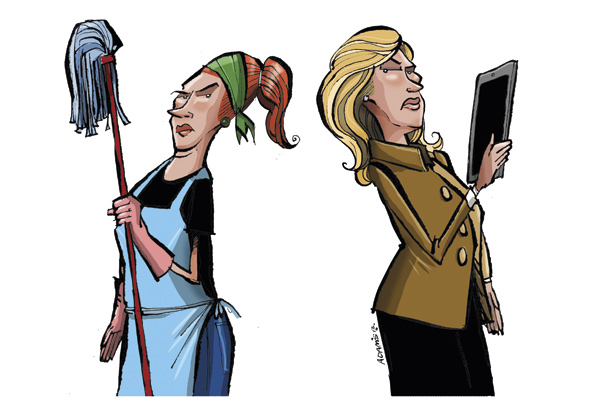James is 15 years old, coming up to his GCSEs; and the researcher he is talking to is clueless about girls. Yes, he tells her, girls at his school, underage girls, do indeed have sex. With guys in their class, like him. The researcher is surprised. Haven’t girls gone studious; aren’t they collecting the top grades, leaving the boys behind?
James states the obvious. ‘It’s not girls with As or A*s,’ he explains. ‘Girls with As are virgins.’
Today, almost a quarter of girls report having underage sex. But there are almost as many girls waiting till they’re 20 or more. This isn’t random, a question of whether and when the right boy appears. Instead, it’s a parting of the ways. One group of girls is setting off along an alpha track, leaving their contemporaries behind; and teenage sex lives are a very good predictor of who they are.
A* girls stay virgin because they have more important things on their minds. It’s not just peer pressure, or social class: it’s also ambition. These girls have realistic, achievable and life-altering goals for which it’s well worth postponing sex. Others don’t. In the years since the Pill made teenage sex a safe activity, a gulf has emerged. In America, high-school dropouts now report becoming sexually active almost three years earlier than girls with law school in their sights.
In England, by the age of 16, girls are dividing into two distinct groups. The top sixth set off along a well-signed route: more hard work at A-level, and then a good university (where they can lose their virginity to an alpha-track boy). A full bachelor’s degree and, increasingly often, a postgraduate one as well; and a well-paid ‘Class 1’ alpha job, professional or managerial.
It’s the same all over Europe and North America, where half of ‘Class 1’ jobs are held by women.






Comments
Join the debate for just £1 a month
Be part of the conversation with other Spectator readers by getting your first three months for £3.
UNLOCK ACCESS Just £1 a monthAlready a subscriber? Log in